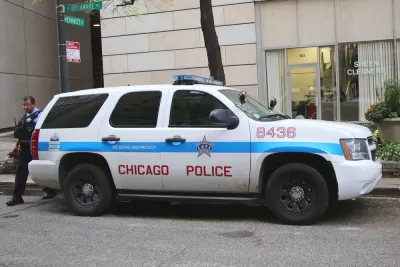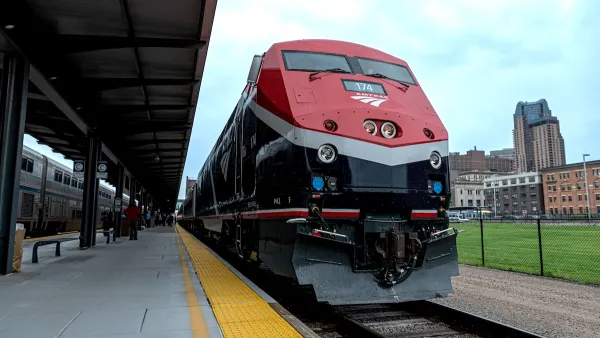A state-produced study of traffic stops in the city reveals that traffic stops in the city have risen sharply, with Black motorists pulled over at much higher rates than their white counterparts.

According to John Greenfield, "the recent news that Chicago police officers have continued to pull over Black drivers exponentially more often than their white counterparts should trouble anyone who wants our city to have a more equitable mobility system."
The "Illinois Traffic and Pedestrian Stop Study found that local police stopped over 204,000 African-American motorists in 2020, while only about 35,000 white drivers were pulled over. The report is published each year in accordance with a 2003 state law intended to help local governments identify and address racial profiling." Over the years, the number of Black drivers stopped by Chicago police has hovered at roughly seven times as many as white drivers.
In 2015, "the city agreed to make sure that investigatory stops of pedestrians, aka 'stop and frisk' were done in a constitutional, racially equitable manner" as part of an agreement with a civil liberties group. "While pedestrian stops plummeted in the wake of that agreement (although the vast majority of those stopped were still African-American), motorists stops have generally sharply risen since then." Even during 2020, when overall driving fell sharply due to the pandemic, "about 62 percent of drivers pulled over were Black, while only about 10 percent were white."
Another notable finding: "90 percent of the traffic stops did not result in a citation, which suggests that motorists generally aren’t being stopped for egregious traffic violations," leading civil liberties advocates to argue that the stops may often have little justification.
FULL STORY: Chicago motorist stops have spiked over the years, with far more Black drivers detained

Planetizen Federal Action Tracker
A weekly monitor of how Trump’s orders and actions are impacting planners and planning in America.

Map: Where Senate Republicans Want to Sell Your Public Lands
For public land advocates, the Senate Republicans’ proposal to sell millions of acres of public land in the West is “the biggest fight of their careers.”

Restaurant Patios Were a Pandemic Win — Why Were They so Hard to Keep?
Social distancing requirements and changes in travel patterns prompted cities to pilot new uses for street and sidewalk space. Then it got complicated.

Platform Pilsner: Vancouver Transit Agency Releases... a Beer?
TransLink will receive a portion of every sale of the four-pack.

Toronto Weighs Cheaper Transit, Parking Hikes for Major Events
Special event rates would take effect during large festivals, sports games and concerts to ‘discourage driving, manage congestion and free up space for transit.”

Berlin to Consider Car-Free Zone Larger Than Manhattan
The area bound by the 22-mile Ringbahn would still allow 12 uses of a private automobile per year per person, and several other exemptions.
Urban Design for Planners 1: Software Tools
This six-course series explores essential urban design concepts using open source software and equips planners with the tools they need to participate fully in the urban design process.
Planning for Universal Design
Learn the tools for implementing Universal Design in planning regulations.
Heyer Gruel & Associates PA
JM Goldson LLC
Custer County Colorado
City of Camden Redevelopment Agency
City of Astoria
Transportation Research & Education Center (TREC) at Portland State University
Camden Redevelopment Agency
City of Claremont
Municipality of Princeton (NJ)





























